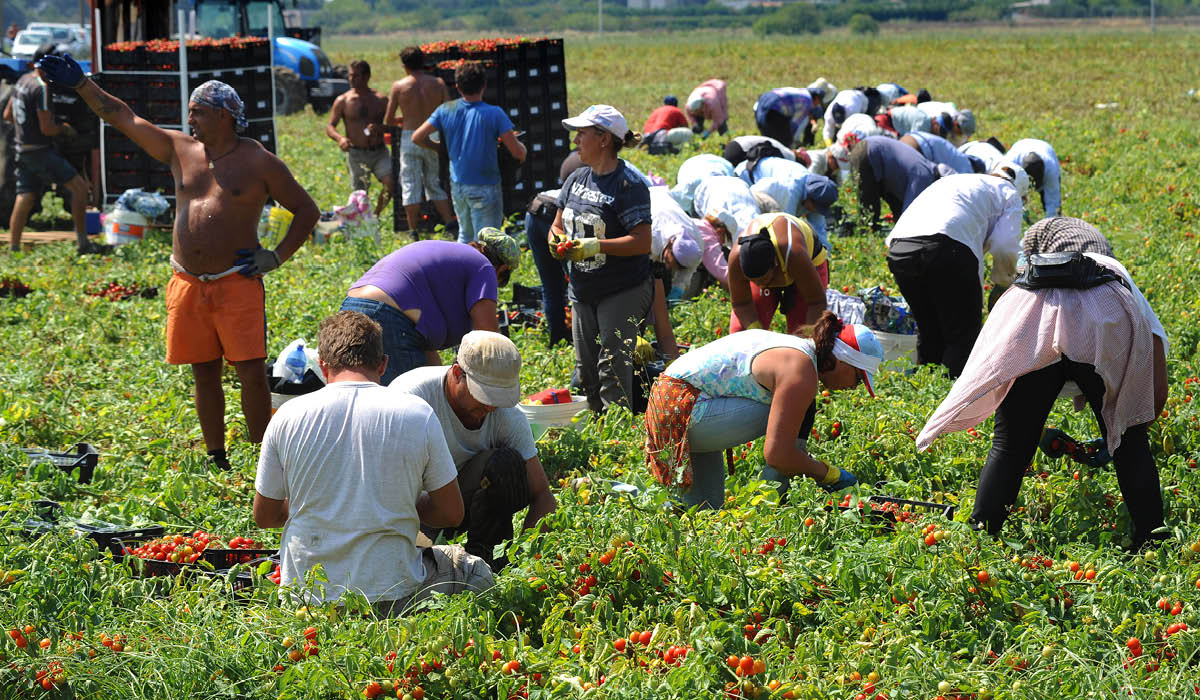From 2019 annual report
During the week the investor initiative group visited farms, producer cooperatives, a refining factory, had meetings with tomato companies, NGOs, the labour ministry, among others. We were presented with a number of challenges which add up to a precarious situation for agricultural workers in Italy, not only within tomato production but across the agricultural sector. Overall, it was clear that the vast majority of workers are migrant workers either with a work permit obtained specifically to work in agriculture, or migrants without permits having to accept work without legal contracts and conditions.
For the latter group, if a worker has been declined a permit once, but still stay in Italy, there is no way they can then get a permit even if they are offered a job with a legal contract. They are left in limbo, often accepting poor working conditions without a legal contract, or having to return to their home country. For those with a contract, we understood that it was not uncommon to get paid for only a part of the hours worked. Workers, with or without contracts and permits often live in ghetto-like accommodation and there have been widespread reports of the mafia controlling workers’ transport and overcharging as a rule. Several fatal incidents have happened over the years when transporting workers in overcrowded and unsafe vehicles.
The investor initiative is actively engaging companies to join initaitives such as the Ethical Trading Initaitive’s Italian working group to collaboratively tackle such issues, seen as a key approach when faced with an issue no one actor can solve.
Tackling root causes to poor labour conditions
While some challenges are unique to the local context in Italy, it was also clear from the trip that one of the root causes hindering efforts to improve working conditions is price pressure. Margins have been considerably tightened in recent years for agricultural producers. This is not only true in Italy, but generally applies across the sector. Meeting with a variety of players along the supply chain during the trip, it became clear that the cost of production, taking into account fair working conditions, need to be a shared responsibility and cannot be absorbed only by producers and agricultural workers. Price mechanisms and procurement processes therefore needs to be a part of the conversation and actions towards better working conditions in food supply chains.
The Council will foster an open dialogue
The engagement project is a global collaboration between investors initiated in 2018. In 2019 dialogue has continued with twenty companies, with the focus on a productive dialogue and benchmarking each company. Particular focus is placed on some high-risk commodities, namely coffee, rice, sugar, tea and tomatoes. The dialogue addresses issues, such as, company policy on human rights,due diligence, proactive mitigation and collaboration with industry stakeholders. Results is updated biannually, tracking company progress throughout the course of the engagement.
Within the investor initiative we will seek to connect companies and relevant stakeholder that want to change the situation. We will do our best to foster an open and constructive dialogue, clearly communicating investor support to tackle root causes to poor labour conditions in food supply chains.
Background facts
Region: Italy and global
Topic: Labour rights in food supply chains




